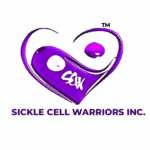NIH stops trial of drug for sickle cell patients
July 28, 2009 | 10:46 am
The National Institutes of Health has halted a clinical trial using sildenafil to treat pulmonary hypertension in sickle cell patients after preliminary results showed that the drug was actually increasing sickle crises rather than reducing them.
Sildenafil, sold by Pfizer as Cialis for erectile dysfunction and as Revatio for treating pulmonary hypertension in otherwise healthy adults, relaxes blood vessels, helping to prevent blockages that induce painful sickle crises, which can resemble heart attacks. The new study, sponsored by the NIH’s National Heart, Lung and Blood Institute, was designed to show that it would work in adults with sickle cell disease as well. About 30% of sickle cell patients suffer from pulmonary hypertension, a debilitating condition of high blood pressure in the arteries thatcarry blood to the lungs. It can lead to heart failure and death. Researchers tested the patients’ ability to walk rapidly on a treadmill for six minutes — hence the name Walk-PHaSST for the trial.
With nearly a year left to go on the trial, officials halted it when a preliminary study of 33 patients who had completed at least 16 weeks of treatment showed that they were significantly more likely to develop painful sickle crises during the test. About 38% of those receiving the drug had sickle crises, compared with 8% of those receiving a placebo. No deaths were observed.
Because the complications observed in the trial were specific to sickle cell patients, researchers said there is no risk to others using the drug for pulmonary hypertension. The agency recommended that physicians treating sickle cell patients off-label with the drug taper it off over a period of three to seven days to avoid problems associated with abrupt withdrawal.
— Thomas H. Maugh II from Los Angeles Times

